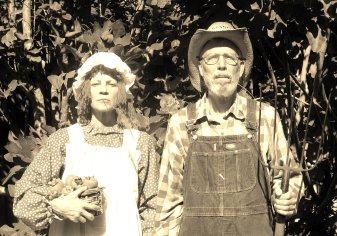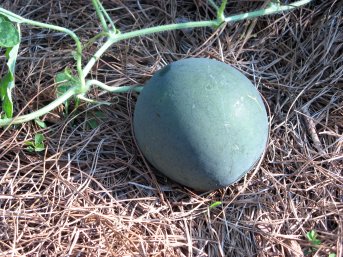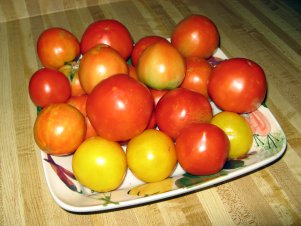|
Backyard Gardening - For The Fun Of ItAs a practicing vegetarian, what hobby or pastime could more practically contribute to the enjoyment of cooking with fresh fruits and vegetables than backyard gardening? It's just a natural. It doesn't matter how much space you have to work with. Even if you live in an apartment or a condo, there is usually at least a porch or patio where you can grow tomatoes, peppers and herbs in containers. Of course, the more space you have with good sun exposure, the more bountiful your harvest can become. And with a little careful planning you can create your own backyard gardening paradise. We have a small house with a typical 40ft. x 60ft. fenced-in subdivision backyard. We have two patio areas, a pear tree, 2 persimmon trees, an orange and a kumquat tree and four other different citrus trees (our future citrus hedge), four different varieties of figs, four vegetable gardening areas, a small herb garden, a large compost bin and grassy pathways providing convenient access to all areas.
Gardening is good exercise and the old adage "a farmer's work is never done" also applies to the backyard gardener. However unlike the farmer or the fruit grower, who may be tending to acres of crops or orchards, the backyard gardener is involved in an intensive agricultural approach. "How can we achieve a more varied harvest from this small growing space?" This is a challenge that will mandate differing solutions for each and every homeowner since each backyard location will have different variables -- local climate, lot size, lot shape, lot orientation to sun exposure, grade variations and drainage will all need to be taken into consideration. Here in southeast Texas we have lots of sun exposure and ample rainfall most of the year, but the soils are mostly a stubborn clay variety called "black gumbo", which is notoriously difficult to work with. Therefore we do all of our plantings in raised garden beds to enhance proper drainage. With our long southeast Texas growing season, we enjoy a staggered bounty of fruit throughout the year. The figs usually ripen between April and August. The pears ripen between July and September. And the different citrus trees can produce ripening fruit from November on into February. We also have two vegetable gardening seasons. We plant our tomatoes, peppers, cukes, melons, beans and other summer crops from late February into early March, which we harvest throughout the summer months. In late August or early September we plant our winter garden of cabbage, broccoli, cauliflower, chard, beets and potatoes, which we harvest in the springtime. We garden organically. We don't use weed killers in our lawns because we add the clippings to our garden beds as mulch, which eventually decomposes and blends back into the garden soil. We fertilize our gardens with our own compost, bagged composted manures, peat humus and other natural soil amendments. So if you're toying with the idea of breaking ground and you're new to gardening, don't feel intimidated. Just go ahead and start planting, even though you don't really know what you're doing. You'll learn as you go from your failures and your successes. For more information about us see Do you have a great gardening tip?Avid, amateur gardeners are like avid, amateur chefs...They love to share their bounty, their secrets and their stories with other like-minded folks. What Other Visitors Have SaidClick below to see contributions from other visitors to this page...
Fool-Proof Soil Mix Return to Meatless Living from Backyard Gardening
|
 It's been a work in progress over the years experimenting with different layouts and trying to take advantage of sun and shade areas, convenience of movement and other practical matters. It is an ongoing and rewarding hobby for us and we're still comming up with new projects and improvements, even today.
It's been a work in progress over the years experimenting with different layouts and trying to take advantage of sun and shade areas, convenience of movement and other practical matters. It is an ongoing and rewarding hobby for us and we're still comming up with new projects and improvements, even today.



